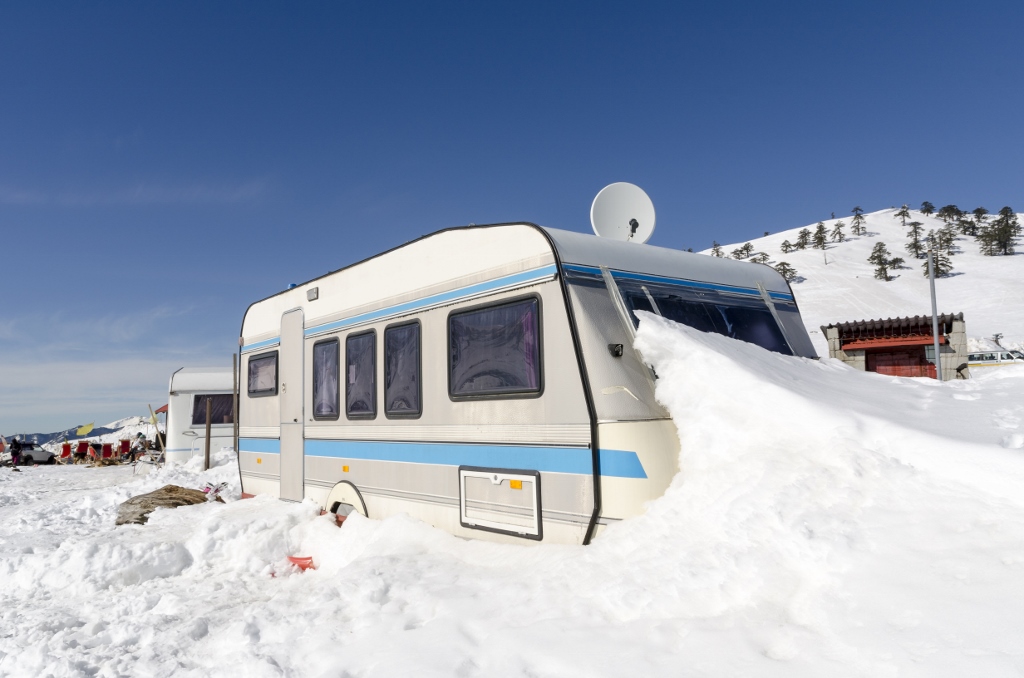 For those of you who are used to touring all year round, carrying out the necessary groundwork before heading off on your winter break is essential. Leading towbars specialist Bosal provides some important top tips to help you prepare for the colder weather and make the most of your winter caravanning.
For those of you who are used to touring all year round, carrying out the necessary groundwork before heading off on your winter break is essential. Leading towbars specialist Bosal provides some important top tips to help you prepare for the colder weather and make the most of your winter caravanning.
The right gas
Keeping warm and having everything ‘cooking on gas’ are two of the most important elements – but what’s even more important is ensuring you use the correct gas!
Using propane instead of butane is crucial – butane liquid only boils into a gas at -2C and will often sit at a temperature a few degrees below ambient, making it unreliable during the winter months. On the other hand, propane has a much lower boiling point of -42C, which means it won’t freeze, providing you a steady and reliable fuel supply. Changing the regulator is also required as it won’t be interchangeable between the two cylinders. If you need more help on getting set up for winter touring and to help you follow all the safety procedures, speak to your regular gas supplier.
Winter stocking
Stocking up on bottled water in any season is not a bad idea, and certainly in winter it isn’t, should your caravan water system and on site water supplies freeze. You should have enough to allow for basic hygiene as well as a good old cuppa. However, overstocking bottled water can mean transporting a heavy load so check to see if there will be local amenities to buy from where you’re headed as this may be an easier option all round. In fact, when carrying all your extra winter supplies, remember not to exceed your recommended weight limit on your touring caravan, which can be found in your car manufacturer’s handbook.
It’s also worth considering taking with you other elements that address safety while you’re on your travels. Equipment such as torches with spare batteries, high-visibility jackets, warning triangles, emergency beacons, thermal blankets and emergency breakdown kits can make a vital difference should wintery conditions take a turn for the worse. Also, don’t forget basic winter accessories such as de-icer, WD40 and ice scrapers.
Should snow and ice affect your ability to drive safely, then snow shovels, snow chains or grip mats should help you out of any potential difficult situation. Some experts also advise having an old piece of carpet on board to gain traction on your wheels when pulling away.
Ensure insulation
Cracked taps, split pipes and even damage to the water tanks and water systems can wreak havoc on your winter plans so keeping the caravan warm and well-insulated will help prevent this sort of damage. Even keeping the mains heating on overnight will ensure the pipes don’t freeze as the temperatures plummet further.
Although UK winters are relatively mild compared to other countries, over here we are prone to the odd harsh winter that can lead to external water carriers or Aqua rolls being susceptible to freezing. This can be avoided by wrapping the container in insulating material – just using simple bubble wrap, quilted coats or old duvets will do the trick.
For older caravans that aren’t double glazed, plastic sheeting can be placed over the existing windows for that extra insulation.
Make time for maintenance
After every trip away during the winter it’s important that you drain your water system to eliminate the risk of damaging water heaters, pipes and other services – such as the toilet flush reservoir, water heater and toilet cassette – items that are easily overlooked.
You should also keep mechanical parts well maintained to ensure your safety, e.g. regular cleaning and checks of brakes and wheels. It’s always worth checking too to see if moving parts such as windows and doors need oiling as you see fit.
Static electrical cables can be prone to becoming stuck or damaged if lying on frosty or snowy ground, so ensure they are moved around.
The UK climate also means it sees its fair share of wet weather, so take a dehumidifier away with you as with wet conditions it can quickly become damp inside your caravan. This also avoids the issue of condensation which can be a serious problem during winter.
Whether you’re a seasoned pro or a caravanning novice, following these tips should help you make braving the chillier conditions extremely worthwhile as well as reduce the threat of your caravan succumbing to the cold.
For more information, interviews or images please contact:
Claire Brown or Kimberley Hornby, Hornby Whitefoot PR
Tel: 07787 505963 E-mail:claire@hornbywhitefootpr.co.uk
Tel: 01858 681122 E-mail: kimberley@hornbywhitefootpr.co.uk
